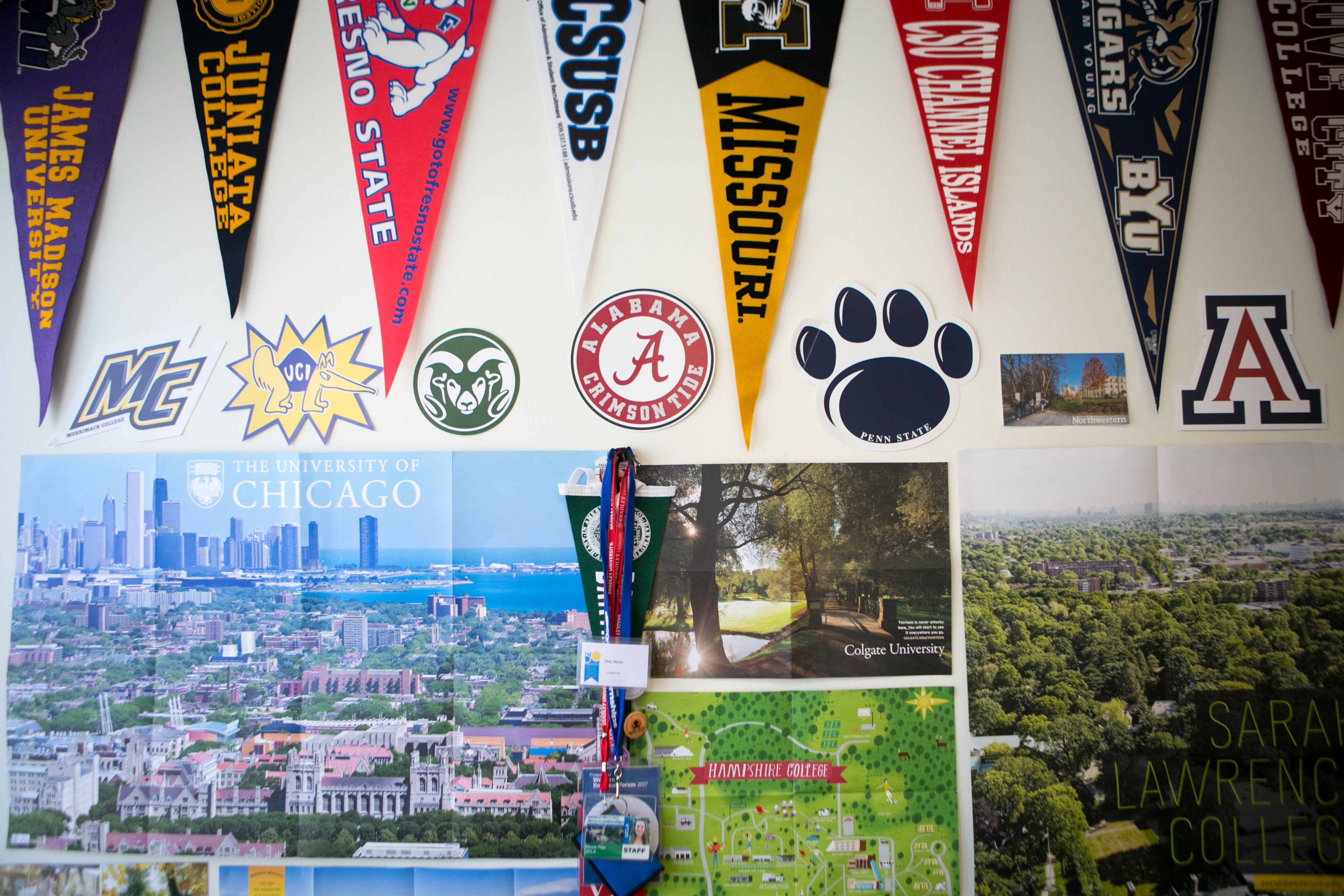With baseball season upon us, I recently completed my first task as coach of my neighborhood Little League team: send a warm welcome email to the parents of all our players.
As the parent of two boys, ages 10 and 7, I’ve still got a few years before we’re in the throes of the college admissions process. But as the founder of a college admissions counseling company, I’ve spent the last 25 years helping kids get into college and watching how their parents’ behavior can impact both the experience and the outcomes. Parenting is a difficult job, with no operations manual issued on day one. But many of the most important principles for parenting a college applicant are the very same tenets as those for parents of Little Leaguers.
Just show up.
The most fundamental way to support a Little Leaguer is to just show up, literally and figuratively. Getting them to and from practice, sitting in the bleachers during games, attending the post-season pizza party—it’s all an investment in your child that makes a positive difference in their experience. The parent who attends the school’s College Information Night event, who takes their teenager to a local college fair, and who proudly wears the sweatshirt of whatever college their teen chooses to attend is showing up in all the most important ways. And their teen’s experience will be more positive because of it.
Set good examples.
Kids take cues from their parents (and coaches) for how to behave in the world. A parent who yells at a volunteer umpire is sending a message to their own child that it’s OK to berate someone who’s doing their best. And the parent who writes the college essay for their applicant is sending a message that it’s acceptable to cheat to get ahead in the world. As parents, we’re on stage all the time; our kids are always watching and learning from our actions. The college application process is an opportunity for teens to learn how mature, responsible adults manage significant life decisions, and for the adults in their lives to lead by example.
Praise the effort, not the result.
Mistakes happen in baseball (even Babe Ruth struck out more than 1300 times in his career). But players with the resilience to keep trying their best and stepping up to the plate are rewarded with more hits over time. A teenager who studies like crazy for a chemistry midterm and genuinely tries their best deserves to be proud of their effort even if they don’t get an “A.” So does the student who doesn’t get the lead in the school play but volunteers to run the lights, and the slowest cross-country runner on the team who commits to self-directed weekly running schedules all summer. Each is an opportunity for teens to hone—and for parents to reinforce—an important life skill. When parents routinely praise the effort independent of the result, their teens are more likely to confidently face challenges, to be more resilient when things don’t go their way, and to eventually earn a lifetime batting average they can be proud of.
Cheer from the sidelines.
Even the most engaged Little League parents don’t run onto the field to try to catch a fly ball for their child. They cheer from the sidelines as enthusiastic and supportive observers. When a well-intentioned parent selects their teen’s extracurricular activities, contacts teachers about academic struggles, or completes college applications, they’re doing work for their teen that a college-bound student should be doing for themselves. Teens need to develop their own initiative and independence to navigate their way to college and to succeed once they get there. Parents can offer guidance, encouragement, and cheerleading along the way. But don’t run onto the field and play their position for them.
Let it be about them.
The Little League experience is ultimately about the player, not the parent. When a parent complains about coaching decisions, expresses frustration over lost games, or criticizes their child’s performance—all while failing to notice or even ask how their own child is feeling about their experience—they’re making it about themselves, not their player. When a parent constantly compares their teen to other students, when they treat parenting like a competitive sport to compare teen accolades, when they become so inconsolable over a college denial they forget to be the loving shoulder to cry on their applicant needs in that moment, they’re forgetting who this entire experience is really about. Yes, a teen’s college future carries greater consequence than does a child’s Little League experience. But it’s still the student, not the parent, who’s ultimately preparing to attend college. And the best way to support teens in their college endeavors is to invest in them while keeping this time about them.
Early replies to my welcome email bode well. Many parents expressed how excited their family is for the season to start, with no mention of any expectation we’ll win a championship. Imagine if families approached college admissions the same way—with excitement about both the journey and the opportunity to watch their kid play. Preparing for college should be an exciting time for both the applicant and the family who’s supporting them. Keep showing up, cheering them on, and reminding them your love is not dependent on one grade, test score, or admissions decision from any college. You’ll strengthen both their admissions chances and your own relationship together. Just don’t forget to supply some good snacks along the way.
Kevin McMullin is the Founder of Collegewise. He lives in Seattle, Washington, with his wife and two sons, and he’s very excited about Little League.
/Kevin%20Blog%20Subscription%20CTA%20(1).png?width=800&height=267&name=Kevin%20Blog%20Subscription%20CTA%20(1).png)
About Us: With more than twenty years of experience, Collegewise counselors and tutors are at the forefront of the ever-evolving admissions landscape. Our work has always centered on you: the student. And just like we’ve always done, we look for ways for you to be your best self - whether it’s in the classroom, in your applications or in the right-fit college environment. Our range of tools include counseling, test prep, academic tutoring, and essay management, all with the support of our proprietary platform, leading to a 4x higher than average admissions rates.






